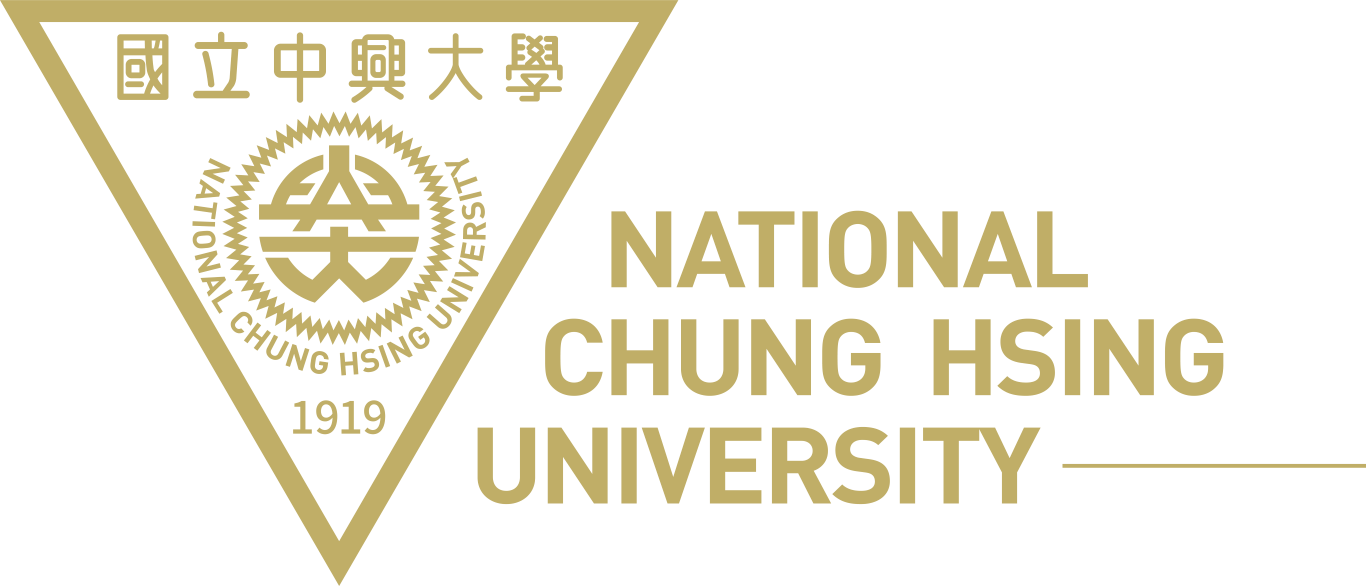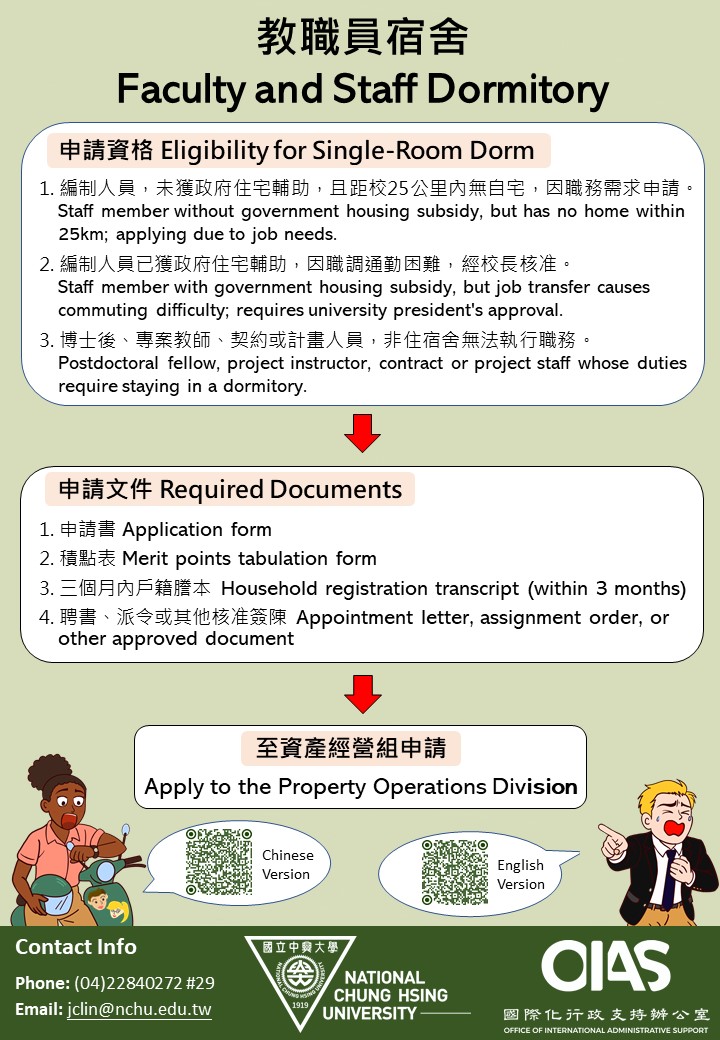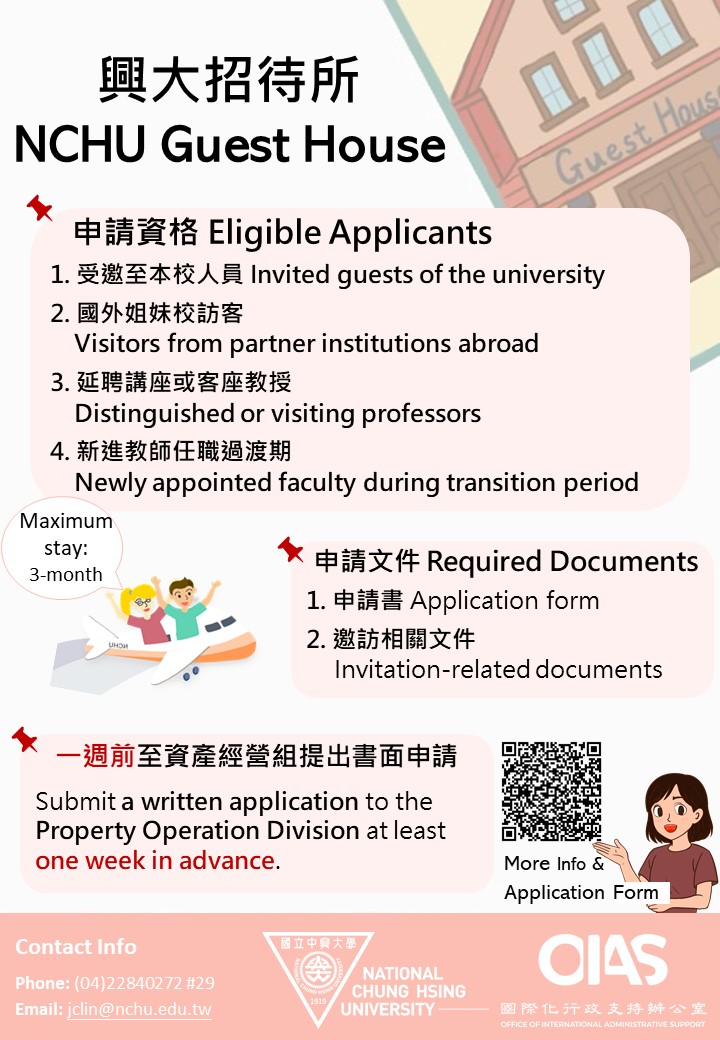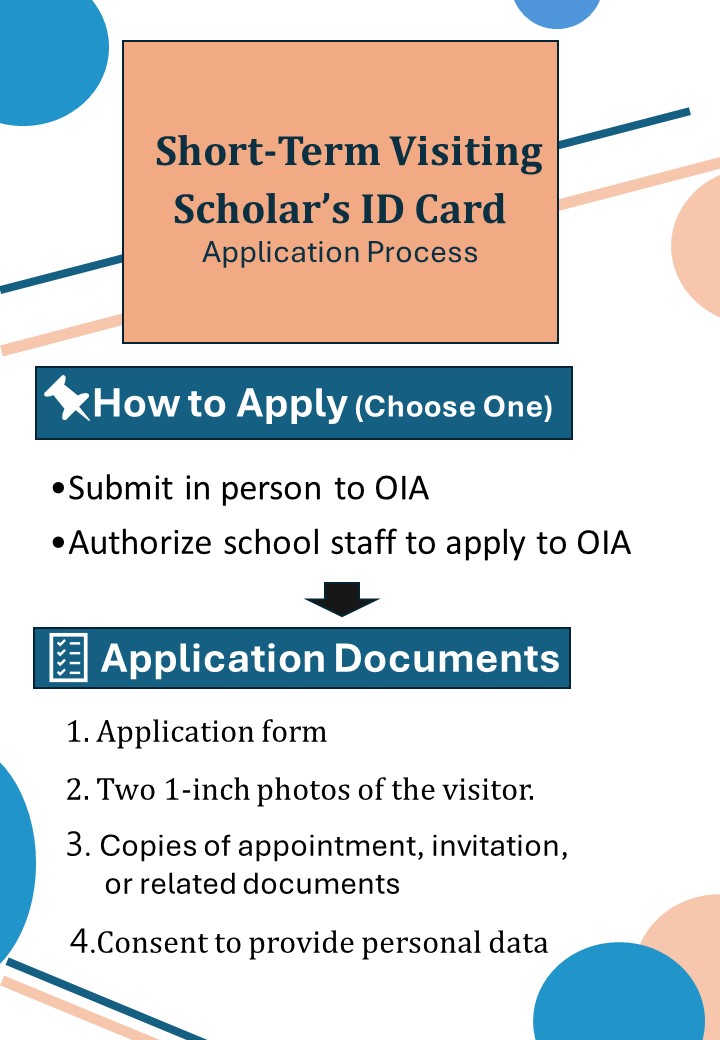University-funded subsidies—NCHU Subsidies for Faculty Members and Postdoctoral Researchers Attending International Scholarly Conferences
Eligibility:
-
- Faculty members (including researchers) working at the University
- Postdoctoral researchers
- Online application documents include but are not limited to the following:
-
-
- An application form
- Proof of paper acceptance
- Abstract of the accepted paper
-
-
- Applicants must submit their application by the deadline closest to (prior to) their departure (by the first day of either March, June, September, or December each year).
-
- Only keynote speakers, invited speakers, or those performing other important tasks or presenting a paper at a conference are eligible to apply. In principle, eligible papers must be published under the auspices of NCHU and be primarily about research activities conducted at the University.
-
- The subsidy covers flights and conference registration and is limited to the following amounts: NT$45,000 for conferences in Europe, Africa, or the Americas; NT$30,000 in Oceania, and NT$20,000 in Asia.
-
- Each person may receive one subsidy per fiscal year.
-
- Attendees of gender studies conferences and those serving in crucial roles at a conference may be granted an exemption from the preceding limitation. However, only airfare will be subsidized from the second conference onwards.
-
- Please first write off any remaining balance of a project’s international travel expense account or apply for external funding before applying with the University.
-
- Conferences held in Taiwan, Hong Kong, or mainland China by non-international organizations are ineligible.




